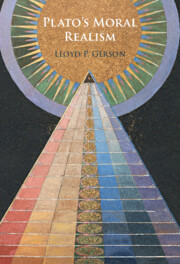Plato's Moral Realism
Plato's moral realism rests on the Idea of the Good, the unhypothetical first principle of all. It is this, as Plato says, that makes just things useful and beneficial. That Plato makes the first principle of all the Idea of the Good sets his approach apart from that of virtually every other philosopher. This fact has been occluded by later Christian Platonists who tried to identify the Good with the God of scripture. But for Plato, theology, though important, is subordinate to metaphysics. For this reason, ethics is independent of theology and attached to metaphysics. This book challenges many contemporary accounts of Plato's ethics that start with the so-called Socratic paradoxes and attempt to construct a psychology of action or moral psychology that makes these paradoxes defensible. Rather, Lloyd Gerson argues that Plato at least never thought that moral realism was defensible outside of a metaphysical framework.
Product details
August 2023Hardback
9781009329989
266 pages
235 × 158 × 20 mm
0.54kg
Available
Table of Contents
- 1. Introduction: Platonism and moral realism
- 2. The idea of the good
- 3. Virtue, knowledge and the good
- 4. Socratic vs. platonic ethics
- 5. Moral responsibility
- 6. Philebus and Statesman
- 7. Morality, religion, and politics
- 8. Concluding remarks.


